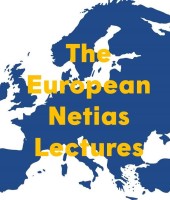Filter Clashes and Democracy: The Dissemination of Information via Social Media and its Impact on Freedom
Conférence de Nadine Sutmoller, chercheuse postdoctorale, Centre de recherche interdisciplinaire, Université de Bielefeld, coordinatrice du Groupe de recherche Economic and Legal Challenges in the Advent of Smart Products, dans le cadre du cycle de conférences Netias sur le thème « La connaissance à l'ère numérique».
Pas d'inscription préalable.
Pour obtenir les liens de connexion : http://netias.science/events
Présentation
Media and, increasingly, social media play a key role in democratic societies by disseminating information. However, the new instruments and their dynamics are fundamentally changing this game: As often explained the new media are characterized in particular by the algorithmically controlled curation of content based on collected data. To avoid information overload, the filtering approach makes perfect sense. However, at the same time, this procedure raises questions that strike at the heart of a democratically ordered society: What impact do these activities have on individual freedom? What does this mean for shaping social coexistence? And what consequences do these developments have for the democratic system? The claim to grant citizens equal freedoms is an essential component of democracy. This enables people to work together, since everyone can assume that they do not have to fear for their place in society. Social networks and their dynamics are increasingly calling this essential requirement into question: The user-specific presentation of content creates different horizons of experience. The phenomenon of the filter bubble is referred to with concern in this context. The term describes the situation in which users no longer participate in the opinions and experiences of others and thus distance themselves from one another. Another fear is that when these different horizons of experience collide, members of society no longer succeed in exchanging ideas with one another. Rather, a deep irritation and speechlessness is to be expected (filter clash). That this is not a bad premonition was evident at the beginning of 2021, when increasingly hardened fronts could be observed in disputes in the wake of the 2020 U.S. election, with participants facing each other aggressively. This development poses a threat to freedom in that members of society are increasingly given the feeling that they have to fight for and defend their own views and opinions. This can be impressively demonstrated not least by the storming of the Capitol on January 6. In this situation, it was no longer possible to exchange views and develop common solutions based on fundamentally shared knowledge. This ultimately endangers the democratic order, since social connectedness is increasingly lacking and thus trust that cooperation is possible cannot be readily assumed. To consider the issues raised, I will link different disciplines (including computer science, media studies) and, in particular, illuminate the situation from the perspective of political philosophy – especially in the context of John Rawls’ theory
Pas d'inscription préalable.
Pour obtenir les liens de connexion : http://netias.science/event
|
|
|
|
|
|

